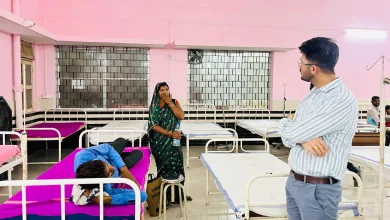Bengaluru High Court directs state government to submit extension proposal

Bengaluru: The High Court of Karnataka has issued a significant directive to the state government, urging the submission of three distinct proposals for the expansion of the High Court premises. In response to mounting concerns over limited space within the court complex, the court has instructed that the Chief Minister consider these proposals to address the critical issue. Advocate L. Ramesh naik led the charge by filing a plea requesting the relocation of offices situated on the ground floor of the High Court building in Bengaluru. A separate Public Interest Litigation (PIL) was also filed by Sharan Desai, seeking the allocation of over 30 plots of land in central Bengaluru for the High Court complex, A Division Bench presided over by the Chief Justice deliberated on these petitions and issued the subsequent directive. The court’s order emphasized that mere submission of one proposal would not suffice. The state government was instructed to present three distinct proposals to the Chief Minister within the coming three weeks, in order to provide a wider range of options for consideration. Additionally, it was mandated that the Chief Minister review and make decisions on these proposals within the following two weeks. The court stipulated that copies of these proposals, after submission to the Chief Minister, should also be furnished to the registrar general of the High Court. Moreover, the court highlighted the significance of soliciting the input of the High Court Building Committee. The copies of the proposals, along with the committee’s responses, would contribute to the Chief Minister’s informed decision-making process. The court further directed that the government obtain an environmental clearance letter prior to relocating the offices currently housed on the ground floor of the High Court building to a nearby facility. The pressing need for expanded space arises from the surging caseload and the appointment of additional judges, which has resulted in severe spatial constraints within the high court premises. The court’s directive underscored the importance of not only providing supplementary space for court offices but also formulating a comprehensive strategy encompassing High Court offices, judges’ chambers, and related facilities. The court warned against the repercussions of any delay in addressing this pressing issue. Failing to adequately tackle the space crisis could potentially lead to a situation that significantly hampers the functioning of the High Court. As the government gears up to present its expansion proposals, the eyes of the legal community and the public alike remain fixed on the outcomes that will shape the future of Karnataka’s judicial landscape.
















